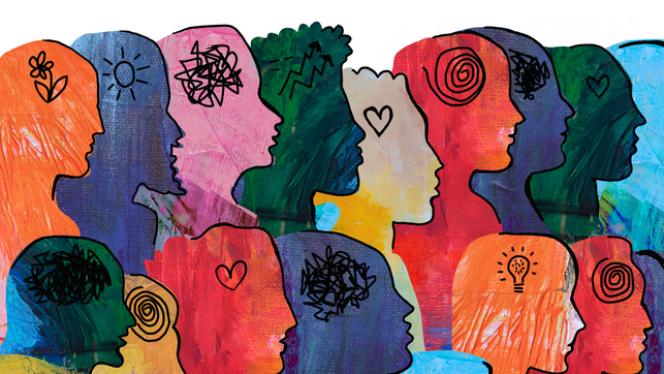Thursday 21 November 2024
Why Somalia needs to tolerate ideological pluralism?

Ideological pluralism is necessary for Somalis so that we can cure our political systems of the negative impacts of tribal dogmatism and religious sectarianism
In a recent opinion piece for Sahan Research, Professor Ken Menkaus, a political scientist at Davidson College, argued that the “political settlements” that have sustained Somalia over the past two decades are no longer sustainable. He argued that these settlements, chiefly clan-based representation formula, initially designed as “temporary solutions” to stabilise the country after years of lingering armed conflicts, were never intended to serve as long-term strategies for rebuilding the nation.
Menkaus believes that the existing power-sharing agreements are now archaic and deficient for addressing Somalia’s contemporary challenges and he concluded that Somalia requires a new political agreement to move the country forward.
The timing of Professor Menkhaus’s opinion couldn’t be more appropriate. The current “political settlement” appears to be increasingly disconnected from both the prevailing sentiments within the country and the aspirations of the youth, who are grappling with the worsening crisis in Somalia. An entire generation is becoming progressively disillusioned with the existing political institutions and discourse, which they perceive as offering little to no viable solutions. They are not only calling for political reforms but are also questioning the very foundations upon which the country’s political dialogue has been constructed. There is also an ongoing contentious debate on the finalisation of Somalia’s provisional constitution, which is making the political discourse exceptionally relevant.
It's noteworthy that the criticism of the tribal-based power-sharing system is not new. As a matter of fact, for years, some Somali scholars have vocally opposed the clan-based representation formula, arguing that it cements division rather than unity. In a thought-provoking essay, the Somali professor and current senator, Professor Abdi Ismail Samatar, wrote a diagnostic critique of the 4.5 power-sharing formula. Despite its widespread acceptance among Somali elites as a necessary compromise for peace, Samatar explained that the clan-based system, which guarantees representation based on lineage, is deeply flawed. He stressed that this model, far from ensuring long-term stability, undermines the principles of fairness, equality and good governance.
Two leading Somali intellectuals, Mohamed A. Eno and Omar A. Eno condemned the formula as a flagrant act of bigotry against marginalised communities. They described it as a system that divides the Somali people “into four clans that are considered equal and therefore classified as ‘pure’ Somali, versus a combination of various other clans and communities, regarded as unequal to the first group and thus considered ‘impure’ or less Somali.” Embedded within this system are hierarchical tiers of citizenship determined by one’s lineage.
Returning to Professor Samatar, he did not merely critique the discriminatory power-sharing formula, he proposed an alternative that he believed could pave the way for Somalia’s transition from exclusionary, clan-based representation to a more inclusive and progressive model. His vision includes an ambitious attempt to separate politics from the influences of religious leaders and clan monopolies, a move he regards as crucial for ensuring an inclusive future for Somalia.
In contrast to the clan-based model, Samatar’s proposal involves the creation of two distinct yet complementary institutions: a Moral Authority (MA) and a Political Authority (PA), to re-establish legitimate governance in the country with broad popular support. The Moral Authority, as outlined by Samatar, would provide the foundation for a moral framework rooted in Islamic and Somali cultural values. Its key responsibilities would include overseeing the nationwide implementation of a “progressive curriculum” focused on Islamic and Somali cultural teachings, while also taking into account the evolving dynamics within both the continent and the wider world.
The MA would also establish centres for inclusive Islamic and cultural education, ensuring they do not promote “close-minded sectarian interpretations of faith and culture.” Additionally, to broaden its influence, Samatar proposed that the MA would create regional centres to resolve communal disputes “fairly and justly.” Finally, the MA would serve as a neutral national guide, intervening to provide moral oversight if the Political Authority deviates from constitutional principles or becomes ineffective.
In a Bildhaan editorial, Samatar presents an interpretation of what progressive and inclusive Islamic moral values entail. He articulates a vision in which these values are intrinsically tied to the preservation and protection of fundamental human rights, particularly freedom of speech, freedom of association, and individual liberty. This perspective reflects his broader understanding of progressive Islamic values as essential to establishing a Somali social contract, where individuals can freely express their beliefs, form associations, and ensure the “separation and distribution of institutional power”.
How can such a Moral Authority ensure public engagement and outreach? Samatar’s model proposes that the MA would issue an “annual report” on the nation’s moral trajectory and civic issues, making this information accessible to the wider public. Although it would not have “legislative or coercive power” nor the authority to “dismiss the government”, the MA would influence the nation through “education and moral persuasion”.
The second institution, the Political Authority (PA), as outlined by Samatar, would focus on the governance of political affairs, ensuring that political power is exercised with integrity and remains aligned with moral values. The PA would operate under a “two-party system,” where parties must have a broad national base and are prohibited from using “religion or tribal” identity as the foundation for their policies and politics.
The PA’s activities would be overseen by an “inspectorate” linked to the MA, which would enforce high ethical standards. Furthermore, an independent electoral commission would be established to manage both national and local elections. The separation of roles between the MA and PA is, as Samatar argued, crucial to prevent the exploitation of cultural and religious values by political figures. The MA would retain the authority to mobilise the population against discrimination and ensure that political power remains grounded in ethical principles.
Regardless of one’s view of the argument or the practicality of the proposal, it seems unlikely to gain traction in the current political climate. Should such a proposal receive mainstream attention, it is likely that the professor’s name would be subjected to character assassination rather than substantive debate. This is because, following the collapse of the Somali state more than three decades ago, a particular political ideology took root—a blend of tribalism and sectarian Islamism that doesn’t tolerate diversity of thought.
During this period, the political landscape was barren. The political establishment was dominated by sectarian and quasi-religious elites who refused to accommodate diverging views. Despite their vast ideological differences, these groups gained prominence by uniting around one common goal: establishing their interpretation of “political Islam” and eradicating the “secular socialist ideologies” left behind by the “scientific socialist” regime and the liberal democracy adopted by early post-colonial leaders. Their aim was and is to annihilate any ideas that remotely resembled these ideologies, which they perceive as a threat to Somali Islamic identity.
As a result, the country’s political thought, ideas, and the environment conducive to political progress have become casualties. A sectarian political class has maintained its grip, creating a system built on clan allegiance, exploitation of Somali faith and values, strongman politics, and conflict entrepreneurship. Contemporary Somali leaders have become more concerned with maintaining their exploitative power and influence within their respective clans than with governing the nation as a whole. This has alienated progressive voices, whose models of statecraft have been condemned to the scrapheap of forgotten ideas. These voices have become isolated, their rational perspectives drowned out by the din of clan politics.
The prevailing assumption is that the current political dynamics in Somalia are at odds with the ideals and expectations of a progressive modern state. However, I would argue that this is merely a superficial manifestation of a much deeper issue. The primary impediment is not the nature of the political dynamics but the lack of ideological political discourse and a tolerant political environment in Somali politics. What is missing is a space where ideas are given equal weight, debated, and tested. Observing how political discourse has evolved in neighbouring countries and enriched their politics may offer insights into this missing piece of the puzzle.
Ethiopia experienced a trajectory similar to Somalia’s from 1975 to 1991, but the two countries diverged thereafter, with each country’s politics shifting dramatically. While Somalia’s path led to warlordism, jihadism, and the rise of tribal politics, political ideas in Ethiopia continued to evolve. The country transitioned from Marxist-Leninism under the Derg led by Mengistu Haile Mariam, to Zenawi’s socialist-inspired “Developmental State” within an ethno-federal system, and finally to the market reforms seen today under Abiy Ahmed’s Prosperity party.
This stands in stark contrast to Somalia. Both countries faced armed revolts in the late 1980s and early 1990s, but if we consider Somalia’s armed groups as doctors prescribing medicine, in this case, the patient was fatally poisoned by those meant to save him. The violence proved to be nihilistic, leaving only a trail of destruction. Meanwhile, Ethiopia was well on its way to forging a new political path.
In 1994, Ethiopia adopted a new constitution, establishing a federal system based on ethnic lines. This marked a departure from Ethiopia’s earlier centralised political system, as power was devolved, and some market-oriented reforms were introduced to attract foreign investment. By 2018, Ethiopia had become Africa’s fastest-growing economy.
The political shifts in Ethiopia are just one example of the many changes that have occurred and continue to occur in the region. They also highlight a crucial aspect: political discourse in Ethiopia has been shifting, evolving, and (relatively) open to change. This openness has given many intellectuals the opportunity to participate in politics and shape its ideological direction. It has opened a new realm of political thought, where intellectuals have been, and continue to be, able to discuss ideas beyond ethnic politics and clan allegiances.
What underpins state formation and political discourse is ideology. It shapes political thought, how the state is structured, the formulation of its policies, and the political horizon it aims to work towards. Highlighting the central role that ideology plays in shaping political thought, beliefs, values, and ideas—particularly regarding how society should be structured and governed—is no easy task. Regardless of one’s political belief system, there is an obligation to present one’s political thinking to persuade others that one’s ideas are better suited to addressing the nation’s concerns. In the absence of an environment enriched by more substantive discourse, Somalis are deprived of the political innovations and ideas that have benefited other nations that could be applied to our own circumstances. Our political elite lacks access to this marketplace of ideas, and this shortfall is evident in the narrow-mindedness and myopia that influences their decisions.
Similarly, a political landscape focused on ideas and ideologies is crucial not only for the present but also for the future of the country’s political life. As the English philosopher and prominent liberal thinker John Stuart Mill astutely noted: “a party of order or stability, and a party of progress or reform, are both necessary elements of a healthy state of political life.” A country cannot thrive under a single ideology; it requires a balance of even opposing ideologies that contribute to the development and evolution of its political culture. This necessitates an environment of tolerance.
Such an environment would ensure that Somalia breaks free from the shackles of tribal dogmatism and the exploitation of Somali values that have held it back for decades, leading the country into new territory—a realm of ideas. In this space, rather than contending with clan and religious collectivism, Somalis would have the opportunity to engage in constructive discourse about their political future. The risk of failing to recognise this crucial moment of potential transformation is that it could drive the country, in the words of Professor Samatar, into “ever deeper and more absurd fragmentation.”










